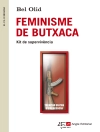This book draws on participatory ethnographic research to understand how rural Colombian women work to dismantle the coloniality of power. It critically examines the ways in which colonial feminisms have homogenized the ‘category of woman, ” ignoring the intersecting relationship of class, race, and gender, thereby excluding the voices of “subaltern women” and upholding existing power structures. Supplementing that analysis are testimonials from rural Colombian women who speak about their struggles for sovereignty and against territorial, sexual, and racialized violence enacted upon their land and their bodies. By documenting the stories of rural women and centering their voices, this book seeks to dismantle the coloniality of power and gender, and narrate and imagine decolonial feminist worlds. Scholars in gender studies, rural studies, and post-colonial studies will find this work of interest.
Tabela de Conteúdo
1. Introduction: Colonial Feminisms and the Colonial Matrix of Power.- 2. Decolonial Feminisms: Place, Territory and the Body-land.- 3. Sentipensando and Unlearning.- 4. Politics of Place from the Home and the Vereda.- 5. Violences in the Territories Bodies-lands.- 6. Territorio Cuerpo-tierra and Colombian Women’s Organised Struggles.- 7. Conclusion:Towards a Compromiso Sentipensante.
Sobre o autor
Laura Rodriguez Castro is a Resident Adjunct Research Fellow at the Griffith Centre for Social and Cultural Research, Griffith University, Australia.












